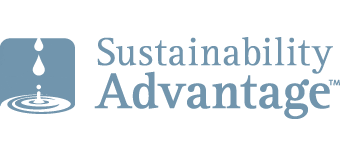7 Reasons Why “Future Generations” are Key Stakeholders
Climate destabilization is an existential threat to human civilization. Current and future generations are in jeopardy on our finite planet. So are businesses. They both have a lot at stake. There are seven reasons why it is time for companies to treat “Future Generations” as key stakeholders who are in urgent need of their attention.
Before we get into the reasons, let’s revisit the “Future Generations” name for human society as a stakeholder. Stakeholders are defined as “anybody who can affect, or is affected by, an organization, strategy or project.” Naming society-at-large / human civilization as “Future Generations” personifies it enough for it to qualify as an “anybody” today and “anybody” who will be affected by the world they inherit. The term “Future Generations” includes executives’ own families (who may be the underlying real reason that they feel compelled to address pressing sustainability issues) under the guise of a less personal, more legitimate, business-like stakeholder name than “my family.”
Plus “Future Generations” honors the Brundtland definition of sustainable development: “Sustainable development is development that meets the needs of the present without compromising the ability of future generations to meet their own needs.” It also reflects the wisdom of the ancient Iroquois Seventh Generation Principle: “The decisions we make today should result in a sustainable world seven generations into the future.” And the adjective “Future” encourages an urgently needed longer-term horizon for corporate strategies.
So, “Future Generations” feels like an appropriate working name for these stakeholders.
Now, on to the five reasons …
“Future Generations” are parent companies
In my previous blog, I proposed that the environment / “Mother Nature” be treated as a stakeholder for five reasons. One reason is that she is our holding company. If “Mother Nature” is the holding company for society and business, then the society / “Future Generations” nest is a business’s current and future parent company, so to speak. Parent companies are treated as key stakeholders because they are too big to fail and their demise would threaten businesses. “Future Generations” should be treated similarly.
“Future Generations” are appropriate stakeholders in the Age of the Anthropocene
As Andrew Hoffman says in “The Role of Business in the Anthropocene: ”Scientists have proposed that we have entered a new geologic epoch; we have left the Holocene and entered the Anthropocene – the Age of Humans … We, as a species, have grown to such numbers, and our technology has grown to such power, that we are altering the ecosystem on a planetary scale.”
Businesses are the most powerful human institutions on the planet. In the Age of the Anthropocene they are not only altering ecosystems, they are altering the underlying conditions for human society on Earth. Business does / will impact our wellbeing and the wellbeing of our children, grandchildren and generations yet unborn. In turn, they do / will impact business, both directly or indirectly. “Future Generations” are key stakeholders in the Age of the Anthropocene, by definition.
“Future Generations” buying power can impact companies
Future generations include today’s youth. Generation Z was born between 1995 and 2015, so they are currently between 3-23 years old. By 2020, 84.7 million Gen Zers will account for 40% of all consumers in the U.S. Although many Gen Zers cannot vote at the ballot box yet, they can vote with their wallets: they spend $29 to $143 billion a year. Gen Z expects brands to be transparent and authentic and are happy to “buycott” products or companies that are not trustworthy. They can impact companies’ top lines. They are key stakeholders.
“Future Generations” are suing government stakeholders for not taking action
They are upset. In 2015, 21 young Americans aged between 11 and 22 launched a lawsuit against the U.S. government. In Juliana v United States (aka the “Climate Kid”s Lawsuit”), the young plaintiffs argue that government promotion of fossil fuels in the face of known climate impacts violates “the youngest generation’s constitutional rights to life, liberty, and property.”
In Quebec, youth group Environnement Jeunesse filed a class-action lawsuit in November 2018 on behalf of nearly 3.5 million Quebecers under 35 years of age. The lawsuit accuses the Canadian government of gross negligence on climate change for more than 25 years: “Despite recognizing the urgency of acting and the grave dangers posed by climate change, the Canadian government did practically nothing.” The suit argues that climate change violates young people’s right to live in a “healthful environment” that preserves biodiversity.
“Future Generations” are awakening governments with their lawsuits. Governments impact companies with their regulations. If “Future Generations’” lawsuits act as an accelerator for tougher sustainability-related regulations, they are influential stakeholders.
“Future Generations” are speaking truth to powerful stakeholders
Fifteen-year-old Greta Thunberg is a force. She represents future generations who are inheriting a badly damaged world. She is upset that “you adults are shitting on my future.” Greta started with a one-person sit-in outside the Swedish parliament in September 2018. Greta has become a global phenomenon, speaking truth to power. She accused adults at COP 24 of not being “mature enough to tell it like is” about climate change. In January, she demanded that the rich and powerful attendees at the annual World Economic Forum in Davos take action.
“Solving the climate crisis is the greatest and most complex challenge that Homo sapiens have ever faced. The main solution, however, is so simple that even a small child can understand it. We have to stop our emissions of greenhouse gases. Either we do that or we don’t.
“You say nothing in life is black or white. But that is a lie. A very dangerous lie. Either we prevent 1.5˚C of warming or we don’t. Either we avoid setting off that irreversible chain reaction beyond human control or we don’t.
“Adults keep saying: ‘We owe it to the young people to give them hope.’ But I don’t want your hope. I don’t want you to be hopeful. I want you to panic. I want you to feel the fear I feel every day. And then I want you to act.
“I want you to act as you would in a crisis. I want you to act as if our house is on fire. Because it is.”
Her strike from high school has inspired young people across the world to carry out similar protests. Thousands of students from Brussels to Melbourne to Winnipeg are walking out of classes every Friday to draw attention to the climate crisis and opportunities to fix it. So far, they have focused their attention on governments in the hope that governments will ensure citizens – including corporate citizens — take action. Again, “Future Generations” find clever ways to mobilize the powerful stakeholders to take actions that could impact businesses. They are influencing the influencers. They are stakeholders who can impact business through others.
2 Other reasons
Two other reasons that support “Mother Nature” being treated as a key stakeholder also support “Future Generations” having seat at the stakeholders’ table. First, surrogates like the United Nations Educational, Scientific and Cultural Organization (UNESCO) try to speak for “Future Generations” but are too easily marginalized by hard-nosed business leaders as non-material stakeholders. “Future Generations” need to be considered as legitimate stakeholders themselves. Second, there is no downside to treating “Future Generations” as key stakeholders. In fact, it would help ensure that the voice of its parent company is heard above the noise of day-to-day affairs.
In the 21st century – the Age of the Anthropocene — treating “Mother Nature” and “Future Generations” as key stakeholders enables companies that pride themselves on good stakeholder management to avoid new risks and capture new opportunities that traditional, old-school stakeholder analysis might miss.
For companies that put a high priority on being good stewards of their capitals, maybe Natural Capital and Social Capital would be better names for the nests. Other companies might prefer Gaia and Humanity. Or Bert and Ernie. The names don’t matter. Whatever labels trigger urgent corporate attention to the wellbeing of our destabilized nests is what matters. As Greta Thunberg might say, “We need the business community to act as it would in a crisis. We need it to act as if its nests are on fire. Because they are.”




